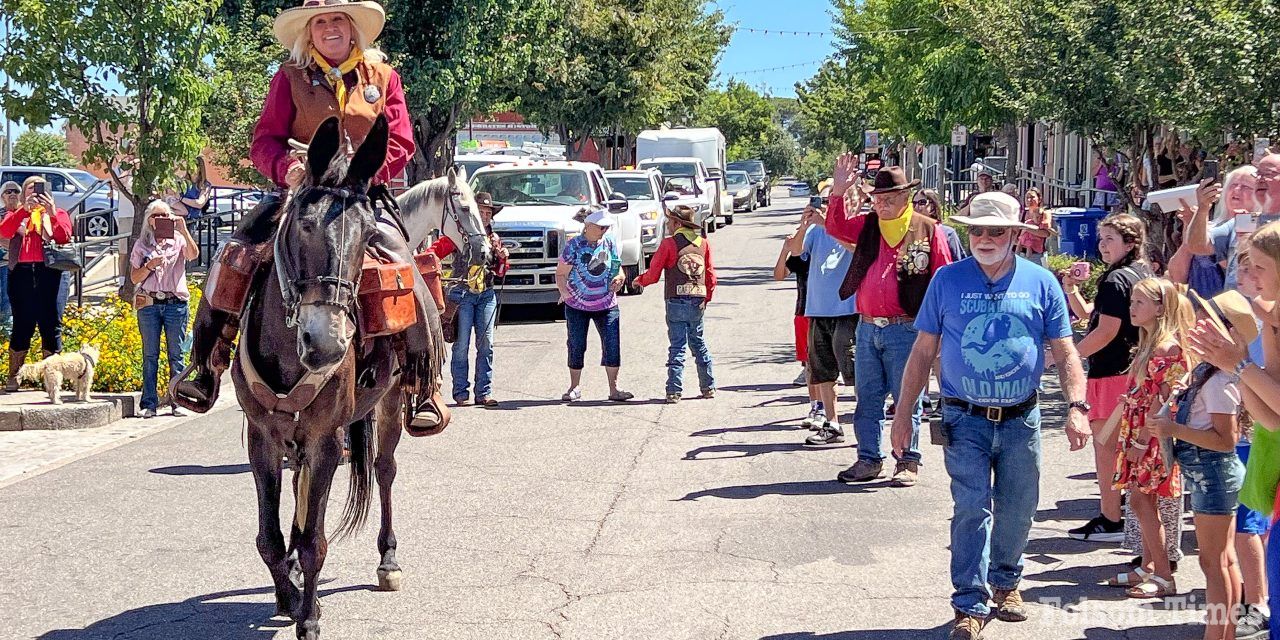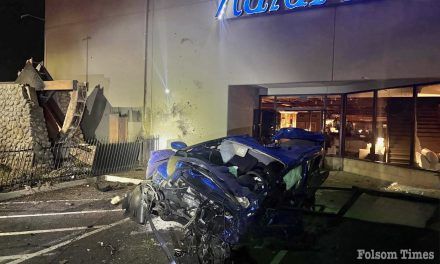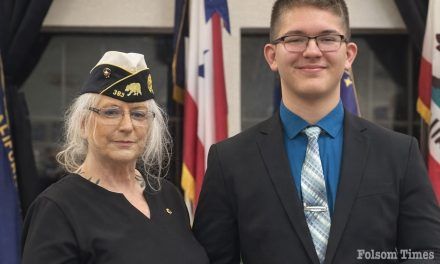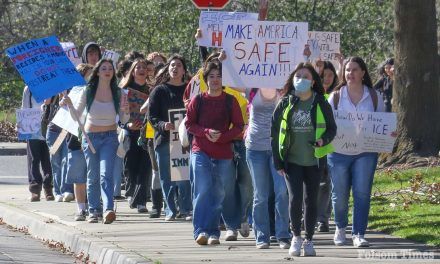The National Pony Express is riding once again along its historic trail, just before noon on Thursday, the re-ride made its way through Folsom, where riders were greeted by spectators who gathered outside of the Folsom History Museum to see history re-enacted. The special event also gave youngsters the opportunity to participate in several activities or learn about the Pony Express as they awaited its arrival.
The journey of the Pony Express re-ride stretches from St. Joseph, Missouri, to Sacramento, on Thursday, three different riders made theirexchanges within the city limits, including the special stop in Historic Folsom, a stop that added a little extra charm and history of the old west.
The annual re-ride is a 10-day, 24-hour-per-day event traversing the Pony Express National Historic Trail, now managed by the National Park Service. The mail traveles 1,966 miles across the diverse landscapes of California, Nevada, Utah, Wyoming, Colorado, Nebraska, Kansas, and Missouri. The 2024 trek departed St. Joseph on Monday, June 17.
After dashing through Kansas and Nebraska earlier in the week and making its way through Wyoming and Utah by the weekend, the ride reached the California/Nevada state line last Wednesday evening. The journey was set to conclude in Old Sacramento later Thursday.
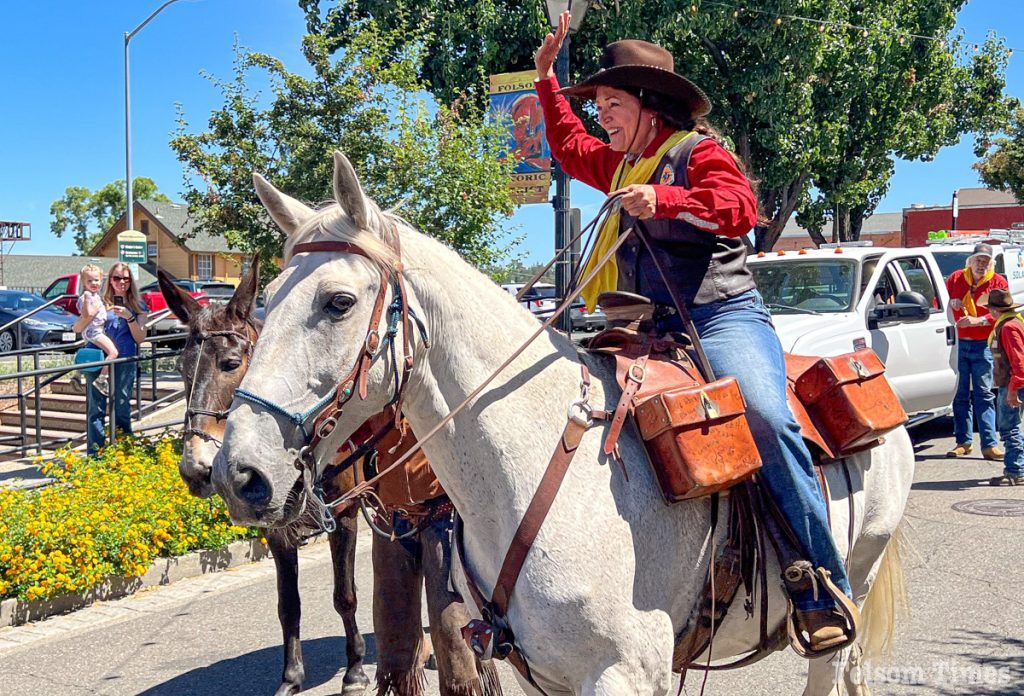
Pony Express rider Cindy Dawsa was the first slated to arrive in Folsom Thursday, making a swift exchange near Folsom Dam Road just after 11:00 a.m. Rider Carolyn Gilmore was the next assigned rider that carried the mail into Historic Folsom, arriving just around 11:30 a.m. Spectators, buzzing with anticipation, watched the horse and rider trot up Sutter Street and stop in front of the museum where next scheduled rider Jim Swigers took over after a brief stop near Willow Creek, guiding the precious cargo along the American River Parkway en route towards Old Sacramento.
Thursday morning was a festive affair at the Folsom History Museum, which opened its doors early to welcome the community and waived admission during the event. Just after 10 a.m., the museum hosted Pony Express and other Folsom History themed craft activities for families. When the time came, visitors were delighted in meeting the waiting rider, taking photos, and soaking in the historical ambiance. The atmosphere was electric with excitement and a palpable sense of stepping back in time.
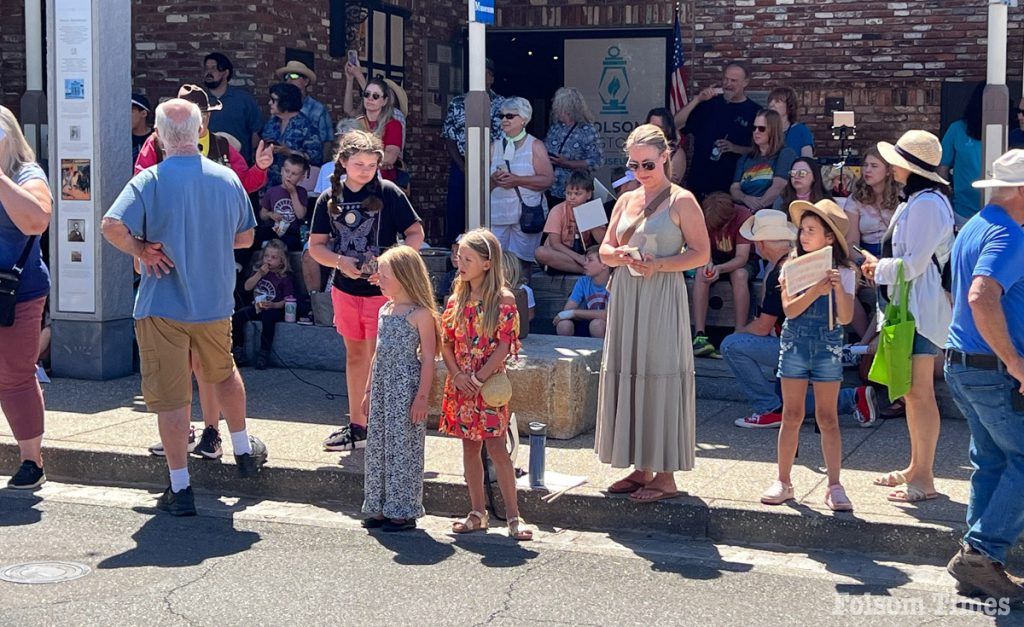
Approximately 600 riders from the eight state divisions of the Pony Express participated in relays of 1-5 miles each for the Pony Express re-ride this year. The crew rides tirelessly 24 hours a day until the delivery was complete. At each stop, including Folsom, riders took the ceremonial Pony Express Oath and received a Bible before riding the next leg with the mochila.
“I brought my 9 year-old daughter and her friend who is staying with us this week to see this, ” said local resident Maryann Mondella. “They really took an interest and it’s always great to have something like this that is fun, but is educational all in one. It was our first time in the museum too, it’s great that they still do this for these younger generations.”
The re-ride honors the Central Overland California and Pikes Peak Express Company, which carried letters and telegrams from April 1860 to November 1861. This effort proved the Central Route through Salt Lake passable year-round, aiming to secure a federal mail contract.

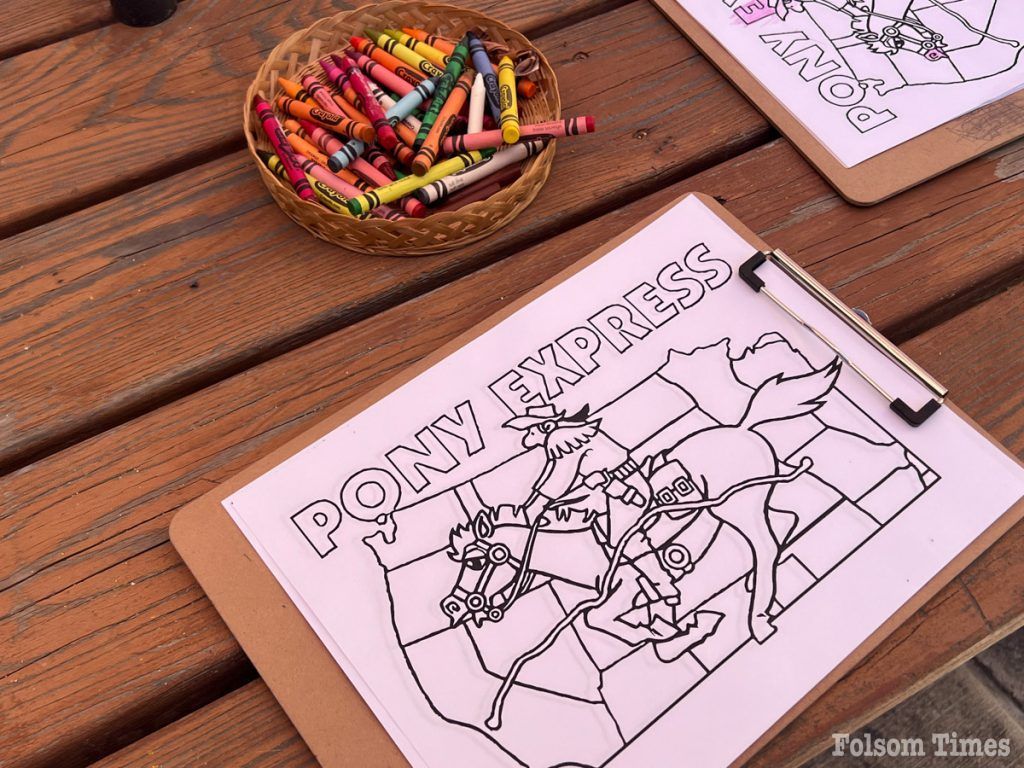
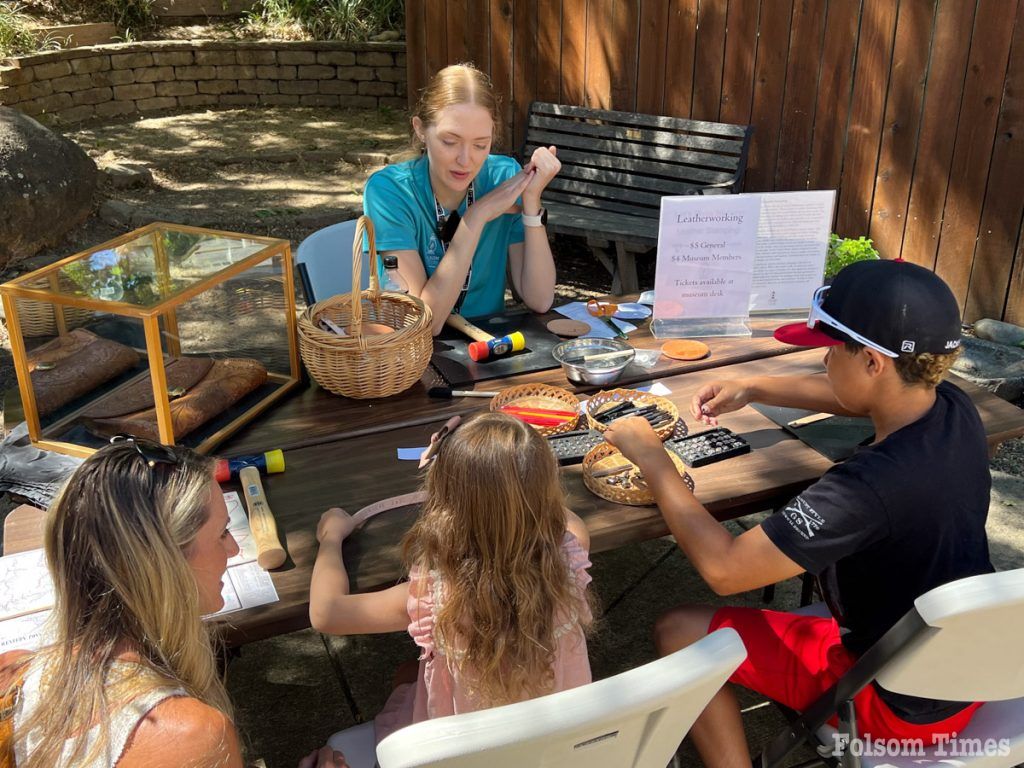
1,966 miles in 10 days; Mail took its time back in the day
Young men once rode horses to carry mail from Missouri to California in the unprecedented time of only 10 days! This relay system along the Pony Express National Historic Trail crossing eight states was the most direct and practical means of east-west communications in 1860. From Missouri to California the Pony Express riders could deliver a letter faster than ever before.
According to documents by the National Pony Express, the original Pony Express was in operation for only 18 months between April 1860 and October 1861. Nevertheless, the Pony Express has become synonymous with the Old West. In the era before easy mass communication, the Pony Express was the thread that tied East to West.
Thousands of people moved west on the Oregon and California Trails starting in the 1840s, followed by the 1847 Mormon exodus to Utah and the 1849 Gold Rush. The growing West needed fast mail communication beyond the Rocky Mountains. William H. Russell, Alexander Majors, and William B. Waddell created the Central Overland California & Pike’s Peak Express Company to carry mail across the county. It later become known as the Pony Express.
On June 16, 1860, about ten weeks after the Pony Express began operations, Congress authorized a bill to subsidize a transcontinental telegraph line to connect the Missouri River and the Pacific Coast. This resulted in the incorporation of the Overland Telegraph Company of California and the Pacific Telegraph Company of Nebraska.
While the telegraph lines were under construction the Pony Express operated as usual. Letters and newspapers traveled the entire length of the line from St. Joseph to Sacramento. The telegrams went only between the rapidly advancing wire ends.
It was on October 26, 1861 that San Francisco was in direct contact with New York City. The Pony Express was officially terminated. In November 1861 the last Pony Express letters completed their journey.
Most of the original trail has been obliterated by time or human activities. Along many segments, the trail’s actual route and exact length are matters of conjecture. In the western states, the majority of the trail has been converted, over the years, to double track dirt roads. Short pristine segments, believed to be traces of the original trail, can be seen only in Utah and California. However, approximately 120 historic sites may eventually be available to the public. This includes 50 existing Pony Express stations or station ruins.
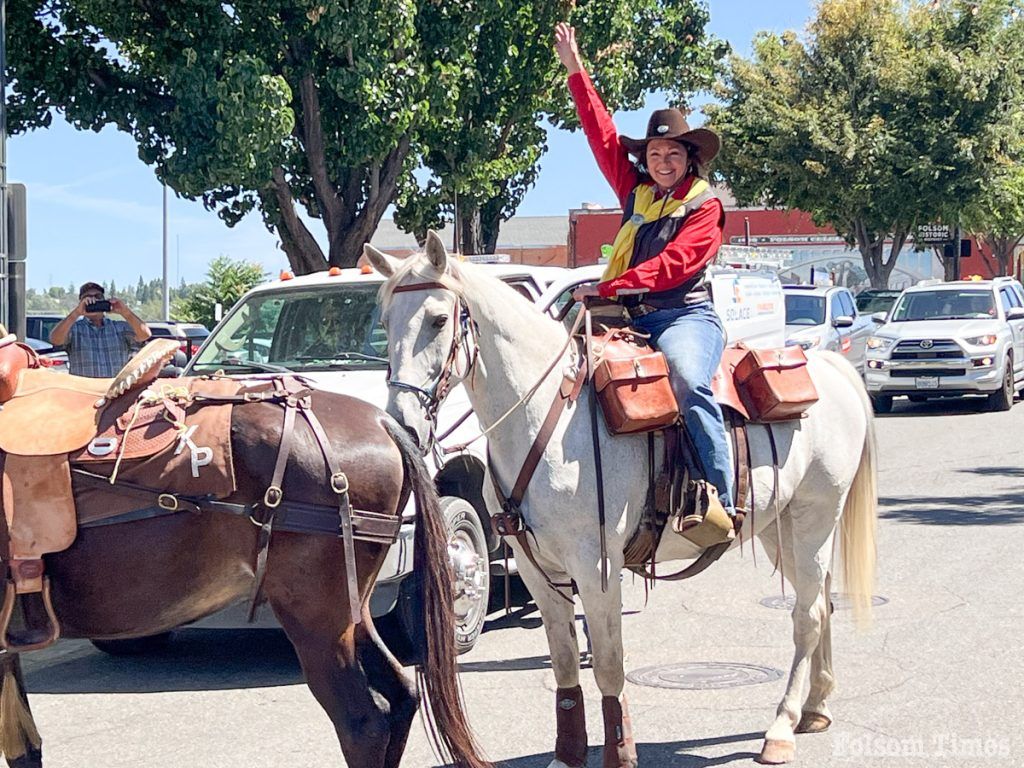


Folsom Times Photos: Bill Sullivan
